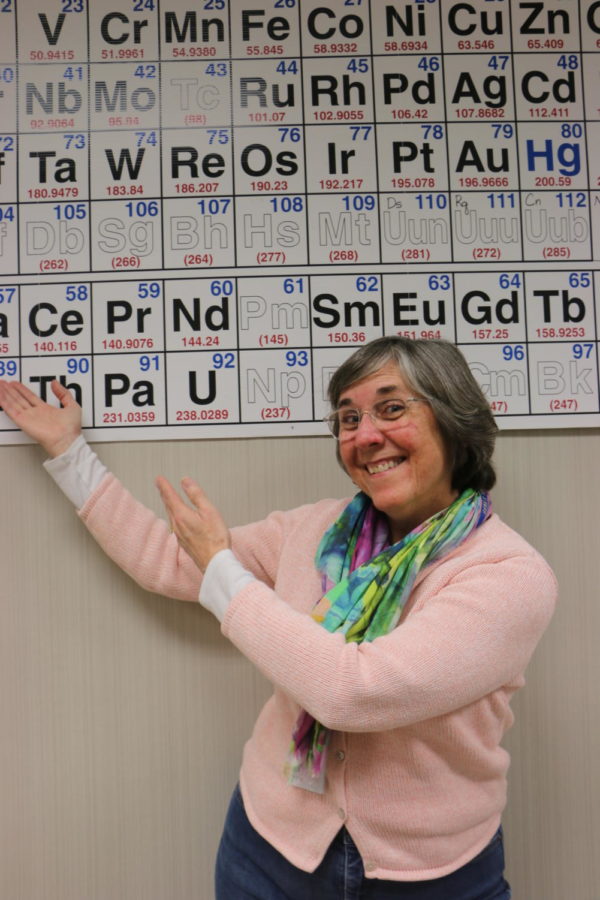AP Chemistry teacher Virginia Kundrat
What drew you to the STEM field to become a chemistry teacher today?
My dad is a chemistry professor, so going in and observing his labs—it just always looked very cool and interesting to see what was going on under the fume hoods. That was the first thing that really drew me in—seeing the labs that his students did.
I worked as a chemist before I became a teacher. Part of that was to coordinate my schedule with my girls who were younger then, and part of that, once I got into teaching, (was) I just loved the interaction with students. So I enjoy it.
What was working as a chemist like, compared to working as a chemistry teacher now?
As a chemist, I could go home most nights and leave it behind. As a chemistry teacher, not so much. I’m grading all the time. It feels like anytime I have downtime, I’m grading. But I love them both, I really do.
We had limited interactions as a chemist—basically with my lab group and a few people outside, but it was very limited interactions. Here, as a teacher, you have all sorts of interactions.
How has STEM impacted your identity?
It’s just helped me to become very good with critical thinking skills. See, I don’t know life without (STEM). I’m too old to remember what life was like before that.
What have your experiences been like as a woman in a STEM field?
For chemistry, it wasn’t so bad. For physics it was. I remember taking physics courses and engineering courses. My daughter’s an engineer and hearing her experiences in the classroom and out in the field—there are definitely issues there that females have to overcome.
Those barriers, I think they’re coming down, but they still exist in some areas. You know, when you love something, you want to do it. You overcome those barriers
As you talked about your daughter also being a part of the STEM field, what challenges or barriers have you or your daughter faced?
I could probably think more of my daughter’s examples than my own right now because I think that physics and engineering—those are bigger areas (of female underrepresentation). Chemistry, there were plenty of females, so I didn’t really encounter too much of that myself, but I remember my daughter with the study group. When somebody didn’t like her response, they told her, “Oh, go cook,” “Go clean the dishes,” or something like that. It was those kinds of degrading comments. You laugh it off, but, but some of that still exists. And when she first started working with an engineering firm, she definitely felt some hurdles to overcome as a female. Yeah, I don’t know a lot about (challenges females face in the STEM fields); I didn’t experience a whole lot. My daughter has experienced more.
Do you have any advice for girls who want to pursue STEM?
Follow your dreams; follow what you love. There’s going to be obstacles in any profession for any person, male or female. Knowing that, you let it roll off your back and go with what you love.










